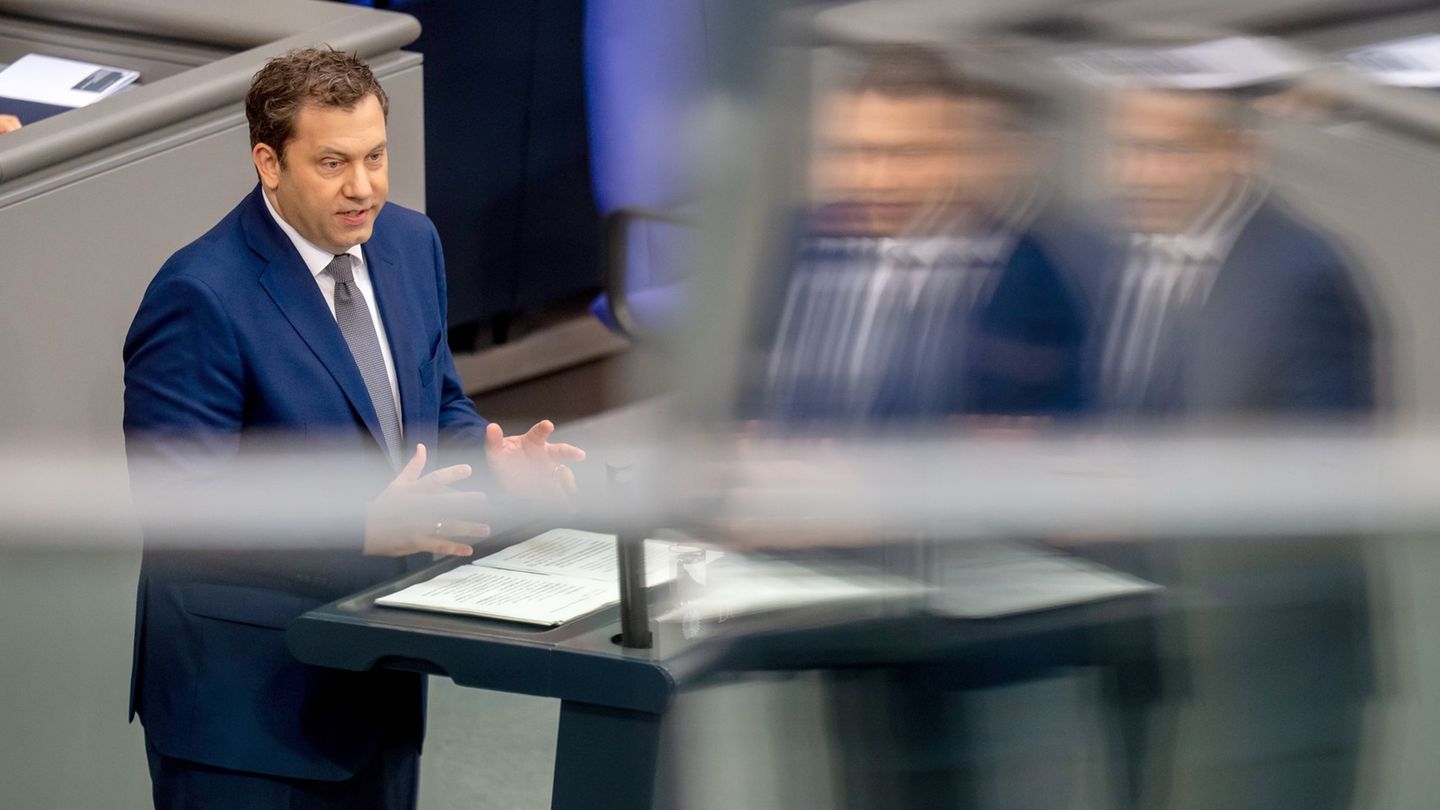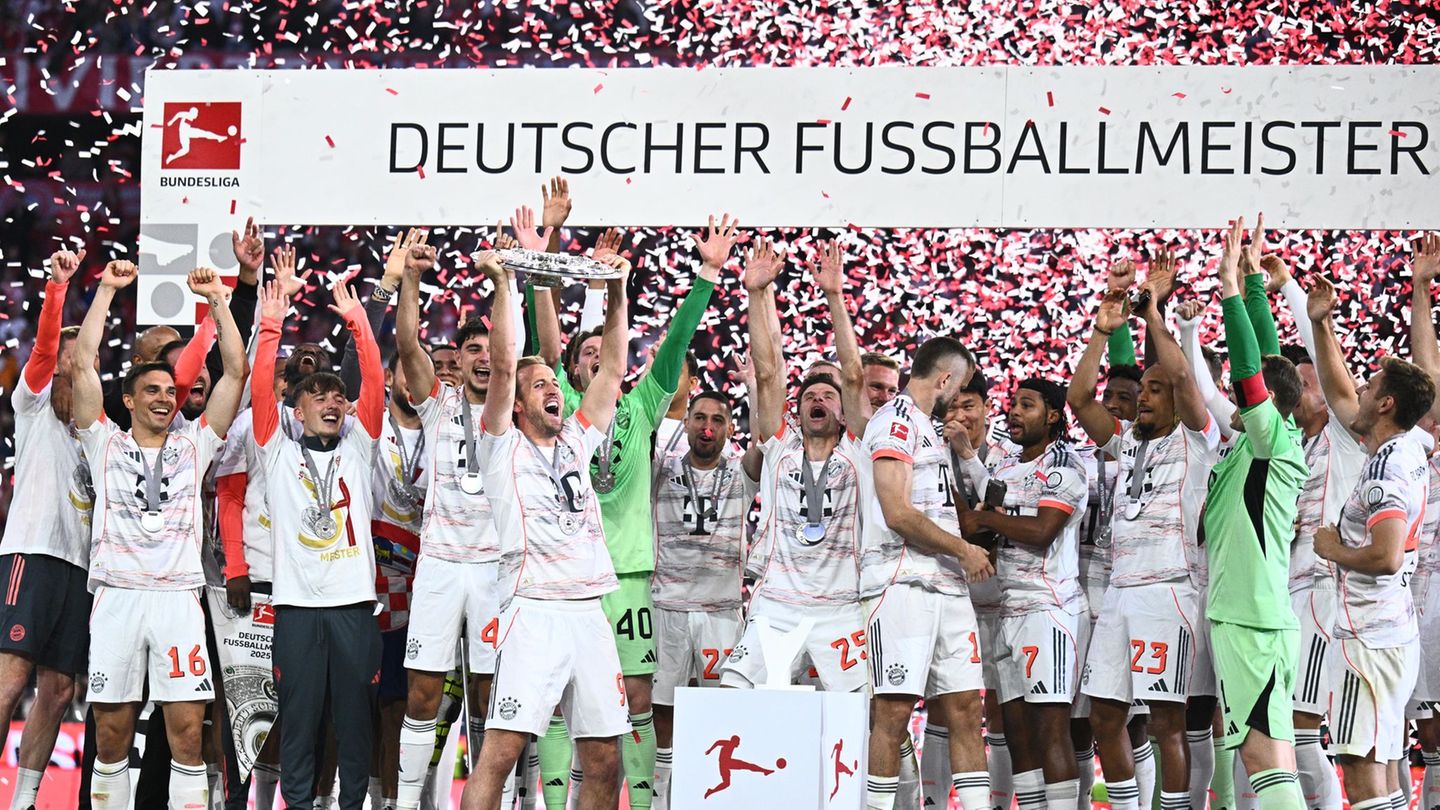Household
Klingbeil promises: potholes away, train on time
Copy the current link
Add to the memorial list
The budget week begins in the Bundestag. It’s about a lot of money – and many new debts. What this should bring to the citizens.
Potholes away, trains on punctual, school toilet: the citizens in Germany will soon feel the consequences of the state investment boost in Germany. Federal Finance Minister Lars Klingbeil promised this. The SPD leader brought the 2025 draft draft into the Bundestag by 2029. Significantly more investments are planned, which are to be financed primarily by much higher debts.
“We are now starting what has been neglected in our country for years,” said Klingbeil. “We want the citizens to feel this in their everyday life that something changes.” He cited examples: the pothole that has been eliminated for years. The school toilet, which has not been used for years, should be repaired, the swimming pool gets new showers, bridges are renovated and fiber optic cables laid.
The minister also named planned billion -dollar investments in the Bundeswehr, education and research, climate protection, digitization and social housing – and on the train so that trains become more punctual: “We all know that you are on the platform and the train does not come on time.”
Corner points of the household 2025
The federal government is planning expenses of 503 billion euros this year – 6.1 percent more than in the previous year. 81.8 billion euros are to be financed in the core budget from credit – more than twice as much as last year. In addition, there are more than 60 billion euros from debt -financed special pots. By 2029, the government plans to make almost 850 billion euros in debt in the core budget and in special pots.
In the core budget in 2025, the largest chunk in the spending of the budget of the Ministry of Labor and Social Affairs is more than 190 billion euros. For example, this is financed by grants for pension insurance and expenses for the citizen benefit.
The traffic light government of the SPD, Greens and FDP had failed primarily because of a dispute around the household. That is why a so -called preliminary housekeeping has been in effect since January. Citizens’ allowance, pension or child benefit as well as funding from existing programs will continue to be paid. However, new projects cannot be initiated easily. The budget 2025 is to be decided by the Bundestag in mid -September
Klingbeil spoke of record investments of more than 115 billion euros this year. The funds for this come from the core budget, from which special funds for additional investments in infrastructure and climate protection as well as from the climate and transformation fund, from which projects such as heating funding are financed.
Compared to 2024, the investments increase by 55 percent according to the ministry. Overall, the special fund – a special pot financed – enables additional expenses of 500 billion euros over a period of 12 years. Of these, 100 billion euros go to the countries and 100 billion euros in the climate and transformation funds.
The federal government has announced reforms – so that investments are quick. There should be shorter planning and approval procedures, and measures against the shortage of skilled workers are also planned.
Criticism from the opposition
The Ministry of Finance explains that an investment rate of more than 10 percent in the core budget. The federal government also invests, as agreed in the Bundestag – that applies to 2025 and the following years. Above all, the Greens accuse the government of trickery and speak of a “shift station”. Her criticism: The government postpone investments from the core budget to other pots in order to finance election promises such as the expansion of the mother’s pension or tax relief for gastronomy. This is at the expense of additional investments.
The Green Housekeeper Sebastian Schäfer said that the Federal Government attempts at all corners and corner to postpone existing programs to the special fund so that there was space for election gifts in the household. The planned expansion of the mother’s pension is criticized.
The loosening of the debt brake for defense spending brings significant relief in financial planning. Due to the long -term growth weakness, the tax revenue does not bubble as much as expected. In addition, there should be a significantly growing need for billions in grants in social security. In addition, loans have to be repaid – such as those that the federal government recorded in corona pandemic. The Union’s housekeeper Christian Haase spoke of household gaps of 150 billion euros in 2027 to 2029.
The Ministry of Finance refers to savings on personnel and a reduction in administrative spending. At the same time, the state income should be strengthened, for example by combating tax fraud. More economic growth should ensure more tax revenue. On Friday, the Federal Council is to agree with billions of tax relief for companies.
The Federal Government has decided to refer to tight cash registers in the core budget that the electricity tax should not be reduced for all companies and private households – but for the manufacturing trade. There is broad criticism. In the coalition agreement, the CDU, CSU and SPD have announced a electricity tax reduction for everyone – however, all measures of the contract are subject to financing reservation.
Klingbeil said there were relief for private households from 2026 – the network charges as part of the electricity price should be reduced and the gas storage levy for gas customers is to be abolished. With a view to electricity tax, he said: “The top priority of this government is the economic growth and securing of jobs.”
dpa
Source: Stern
I have been working in the news industry for over 6 years, first as a reporter and now as an editor. I have covered politics extensively, and my work has appeared in major newspapers and online news outlets around the world. In addition to my writing, I also contribute regularly to 24 Hours World.




